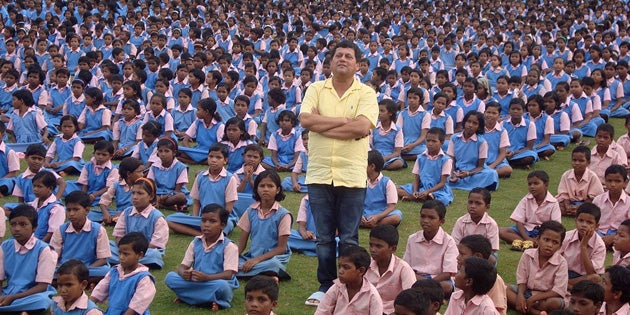In many ways, Christine Finnan’s upcoming trip to India is the culmination of her academic journey and testament to her passion for teaching and anthropology.
Finnan has been awarded a Fulbright scholarship for 2014-2015 to conduct research at the Kalinga Institute of Social Sciences (KISS), a residential school that serves 20,000 indigenous children in Odisha, India.
The school – the largest of its kind in the world – provides free education, housing, meals and medical care to impoverished children from more than 60 different tribes in poor and remote regions of India.
Finnan has been granted unprecedented access to the school for her research project, the results of which could be significant given that KISS is often held up as a model for eradicating poverty in the developing world.
“Although the goals of the school are worthy, questions arise concerning the effect living at KISS ten months a year has on the children and their families and its effect on the viability of tribal cultures and languages,” Finnan says.
In addition to gauging how the school impacts the children and their families, Finnan will also examine the school’s organizational structure, its culture, and its unique features.
Finnan first became interested in KISS when she visited the school as part of a trip to India in 2012 with eight of her students from the College. The trip resulted in a memorandum of understanding between the two institutions to explore further collaboration. But the experience also stuck in Finnan’s mind and tugged at the anthropologist in her for another reason: She wondered if the children at KISS could retain their tribal languages and customs after living away from their families and villages for months at a time, year after year. The school, which educates children from kindergarten through high school, was established in 1993 by Indian entrepreneur Achyuta Samanta. The school is affiliated with a private university whose tuition-paying students help subsidize the programs at KISS.
RELATED: Read a Reader’s Digest profile about KISS founder Achyuta Samanta.
Diverging Paths
Recognizing the research potential and the opportunity to advance the 2012 MOU, all Finnan needed was a nudge. When a colleague remarked that the project would make for a great Fulbright application, Finnan went for it.
“I got the idea that this would be an interesting topping off of my career,” she says. “This project brings a lot of the pieces of my career paths together.”
By “paths,” Finnan is referring to the fact that she has long had a foot in two different academic disciplines: anthropology and education. In fact, she is one of a small number of faculty at the College with a joint appointment in two academic departments: Department of Teacher Education and the Department of Sociology and Anthropology.
Finnan came to the College in 1993 from Stanford University where she was a visiting assistant professor and first became involved with the Accelerated Schools Project, a national school reform movement. She helped establish and oversaw a satellite center for the South Carolina Accelerated Schools Project at the College from 1993 to 2004. That program evolved into the Center for Excellence in Accelerated Learning, which Finnan directed from 1995 to 2002.
In addition to her teaching and research, Finnan is currently the director of the College’s masters program in teaching, learning, and advocacy.
In India, Finnan intends to spend time in the school as well as in the remote villages from which KISS recruits its students. She’ll be assisted in her research by graduate students in India, an arrangement made possible with funding from the College’s Faculty Development and Research Grant program.
Finnan says one of her biggest challenges while working in India, where she’ll be surrounded by some of the most visceral examples of poverty on the planet, will be maintaining an objective, academic perspective.
Although the school has granted her complete access to its people and operations, Finnan says she is obligated to clinically measure the school’s impact – both the good and the bad. Whatever her findings may be, she believes a systematic examination of the school will ultimately help make it better.
“My Fulbright application didn’t sugar-coat the issues,” she says.







